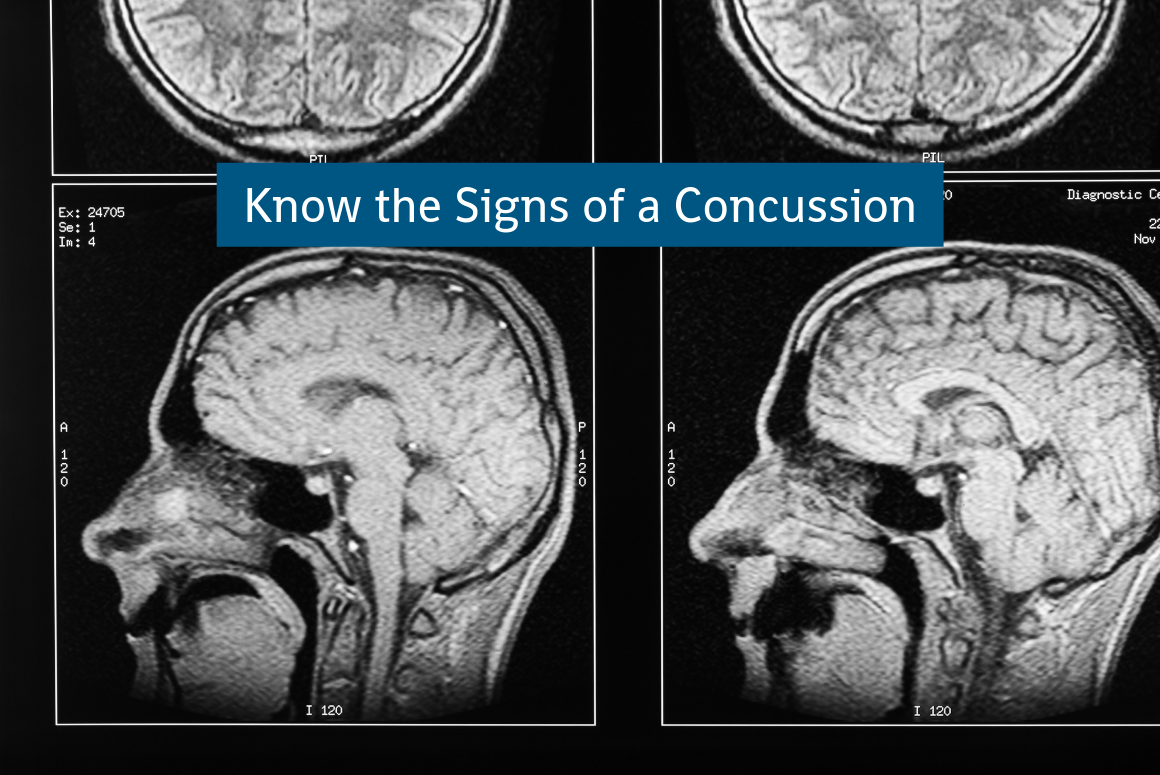It’s estimated that as many as 3.8 million concussions occur in the United States each year across a number of competitive sports and recreational activities. They occur in all sports with the highest incidence in football, hockey, rugby, soccer, and basketball. This summer, we want to help you prevent summer injuries like TBIs by knowing the signs of a concussion.
“A concussion is a bump, blow, or jolt to the head or by a hit to the body, that causes the head and brain to move rapidly back and forth. This sudden movement can cause the brain to bounce around or twist in the skull.” [Source: Centers for Disease Control and Prevention – Heads Up].
How To Prevent Concussions
Unfortunately, concussions are impossible to prevent entirely but we can take steps to reduce the likelihood of them occurring. The most critical of these is to wear the right protective helmet for the sport or activity and ensure that it fits the wearer properly for optimal protection. Helmets should also be well-maintained, age-appropriate, and certified for use.
For athletes, a safe sports culture also plays a large part in lowering their chance of a concussion or other serious injury, and clearly enforcing the rules of play (no hits to the head, no illegal contact etc.) means players can focus on their love of the sport.
Take Immediate Action
In the event of a head injury, athletes should be removed from the game, or kids should stop their activity, immediately. It’s better to assume that a concussion has occurred so that additional or subsequent brain injuries can be avoided wherever possible.
The injured party shouldn’t be allowed to return to play until they have sought the proper medical attention – only a healthcare professional will be able to tell you when it’s safe for them to do so.
Know the Symptoms
This type of brain injury can show signs and symptoms immediately and hours or even days later, so it’s important to monitor the injured person closely and constantly. There are many common symptoms of a concussion [Source: Healthline]:
- Memory problems
- Confusion
- Drowsiness or feeling sluggish
- Dizziness
- Double or blurred vision
- Headache
- Nausea/vomiting
- Sensitivity to light or noise
- Balance problems
- Slowed reaction to stimuli
It’s also normal to expect these symptoms during the recovery period following a concussion:
- Irritability
- Sensitivity to light or noise
- Difficulting concentrating
- Mild headaches
Recovering From A Concussion
Should your child be diagnosed with a concussion during team sports or one of their favourite summer activities, it’s important to remember that their recovery time is going to be unique to them as an individual and the concussion itself, and treatment/recovery should be customized to their symptoms. Here are a few steps you can keep in mind to support your child so they can recover and return to play slowly and safely:
- Rest: Despite past instructions to keep concussion victims awake, a good night’s sleep and regular naps are the best way to help the injured brain repair. You should limit physical and mental activities to avoid symptoms getting worse, and avoid any activities that put your child at risk of another head/brain injury.
- Maintain a healthy diet: Most doctors encourage a brain healthy, high protein diet, which gives your brain the nutrients it needs to make a full recovery. Eat plenty of fruits and vegetables, consume protein, and eat foods rich in Omega 3s, like fish, chia seeds, and soybeans.
- Stay hydrated: Dehydration can mimic many typical concussion symptoms, such as a headache. When you’re hydrated, you give your brain the optimal environment to heal, so drink at least eight 8-ounce glasses of water a day.
- Avoid electronics: Screens are tough on our eyes and brains at the best of times, and they can put unnecessary strain on an injured brain. If using a screen is necessary, lower the brightness, place a blue tint over the screen, or change the white background to one that’s easier on the eyes.
- Take breaks: Just like any other injury, it’s important not to overdo it. When a brain is injured, it gets easily overwhelmed and overworked, so it’s important to take regular breaks so it can rejuvenate (this is where a nap might help!).
Concussion management is so important to the safety of young athletes and children, and you can check out more on our other blog article, Returning to Play After a Concussion.
Terms and Conditions
All content provided on this blog is for informational purposes only. The owner of this blog makes no representations as to the accuracy or completeness of any information on this site or found by following any link on this site. The owner will not be liable for any errors or omissions in this information nor for the availability of this information. The owner will not be liable for any losses, injuries, or damages from the display or use of this information. This policy is subject to change at any time.

